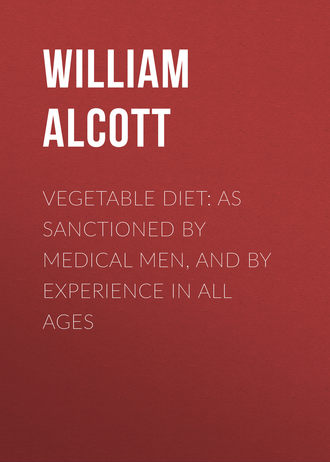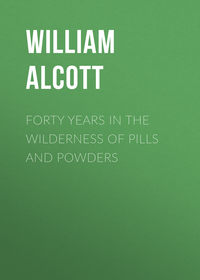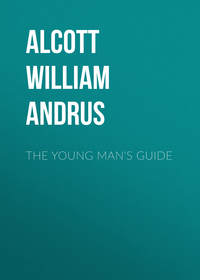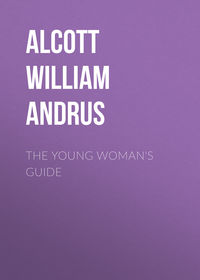
Vegetable Diet: As Sanctioned by Medical Men, and by Experience in All Ages
Receipt 11. – Greens and salads are stringy and indigestible. Besides, they are much used, as condiments are, to excite or provoke an appetite – a thing usually wrong. A feeble appetite, say at the opening of the spring, however common, is a great blessing. If let alone, nature will erelong set to rights those things, which have gone wrong perhaps all winter; and then appetite will return in a natural way.
But the worst thing about greens, salads, and some other things, is, they are eaten with vinegar. Vinegar and all substances, I must again say, which resist or retard putrefaction, retard also the work of digestion. It is a universal law, and ought to be known as such, that whatever tends to preserve our food – except perhaps ice and the air-pump – tends also to interfere with the great work of digestion. Hence, all pickling, salting, boiling down, sweetening, etc., are objectionable. Pereira says, "By drying, salting, smoking, and pickling, the digestibility of fish is greatly impaired;" and this, except as regards drying, is but the common doctrine. It should, however, be applied generally as well as to fish.
1
Dr. Preston has since deceased.
2
Mr. Vincent is of Stonington, Ct.
3
See a more recent letter from Dr. Harden, in the next chapter.
4
Besides, it is worthy of notice, that Dr. Preston did not long survive on his own plan. He died about the year 1840.
5
Dr. Knox has since removed to St. Louis, Missouri.
6
The reader will find another remarkable cure of epilepsy in a subsequent chapter of this volume. The case was that of Dr. Taylor, of England.
7
See pages 13 and 23.
8
This fact, and certain discussions on the subject of temperance, led me to abstain, about the years 1841 and 1842, entirely from all drink for a long time. Indeed, I made two of these experiments; in one of which I abstained nine months and nineteen days, and in the other fourteen months and one or two days; except that in the latter case I ate, literally, for one or two successive days, while working hard at haying, one or two bowls a day of bread and water. But these were experiments merely– the experiments made by a medical man who preferred making experiments on himself to making them on others; and they never deserved the misconstruction which was put upon them by several persons, who, in other respects, were very sensible men. "The author" never believed with Dr. Lambe, of London, that man is not a drinking animal.
9
By seed, Dr. C. means the farinaceous grains; wheat, corn, rye, etc.
10
Cuvier was not a medical man, but I have classed him with medical men, on account of his profound knowledge of Comparative Anatomy and Physiology.
11
"Unless," as a writer in the Graham Journal very justly observes, "these latter indulge, habitually and freely, in the use of intoxicating substances."
12
Such was Gen. Elliot, so distinguished at the famous siege of Gibraltar. Such, too, was Mr. Shillitoe, of whom honorable mention will be made in another place; – besides many more.
13
So he thinks, but I think otherwise. Animal food, as I have shown elsewhere, is not so nutritious as some of the farinaceous vegetables.
14
Dr. J. here overlooks one important fact, viz., that the testimony of all those who have tried the exclusive use of vegetable food is positive in its nature; while that of others, who have not tried it, is, and necessarily must be, negative.
15
The Water-Cure Journal.
16
An aged lady, of Dedham – a pillar in every good cause – has, for twelve or fifteen years, carried abroad with her, when traveling, some plain bread and apples; and no entreaties will prevail with her, at home or abroad, to eat luxuries.
17
Some, however, represent the great apostle to have been a rigid vegetable eater. On this point I have no settled opinion.
18
It may be found at full length at page 233 of the 6th volume of the Library of Health.
19
Instances, he says, are not rare (but this I doubt), of two hundred children born to a man by his different wives, in some parts of the interior of Africa.
20
A date but little later than that of the work whence this article is extracted.
21
For proof that arsenic or ratsbane is sometimes added to cheese, see the Library of Health, volume ii., page 69. In proof of the poisonous tendency of milk and butter, see Whitlaw's Theory of Fever, and Clark's Treatise on Pulmonary Consumption.
22
See Dunglison's Hygiene, page 250.
23
The Young Housekeeper.
24
Or, more nearly, perhaps, a year and a half, in this country. In England, it is one year and five-sevenths.
25
Formerly called Graham meal.
26
I shall use these terms indiscriminately, as they mean in practice the same thing.
27
Both these processes are patented in Great Britain. The bread thus retains its sweetness – no waste of its saccharine matter, and no residuum except muriate of soda or common salt. Sesquicarbonate of soda is made of three parts or atoms of the carbonic acid, and two of the soda.
28
Keep butter and all greasy substances away from every preparation of food which belongs to this division – especially from green peas, beans, corn, etc.
29
Some prepare them, and soak them in water over the night.
30
In general, the appetites of the sick are taken away by design. In such cases there should be none of the usual forms of indulgence. A little bread – the crust is best – is the most proper indulgence. If, however, the appetite is raging, as in a convalescent state it sometimes is, puddings and even gruel may be proper, because they busy the stomach without giving it any considerable return for its labor.





